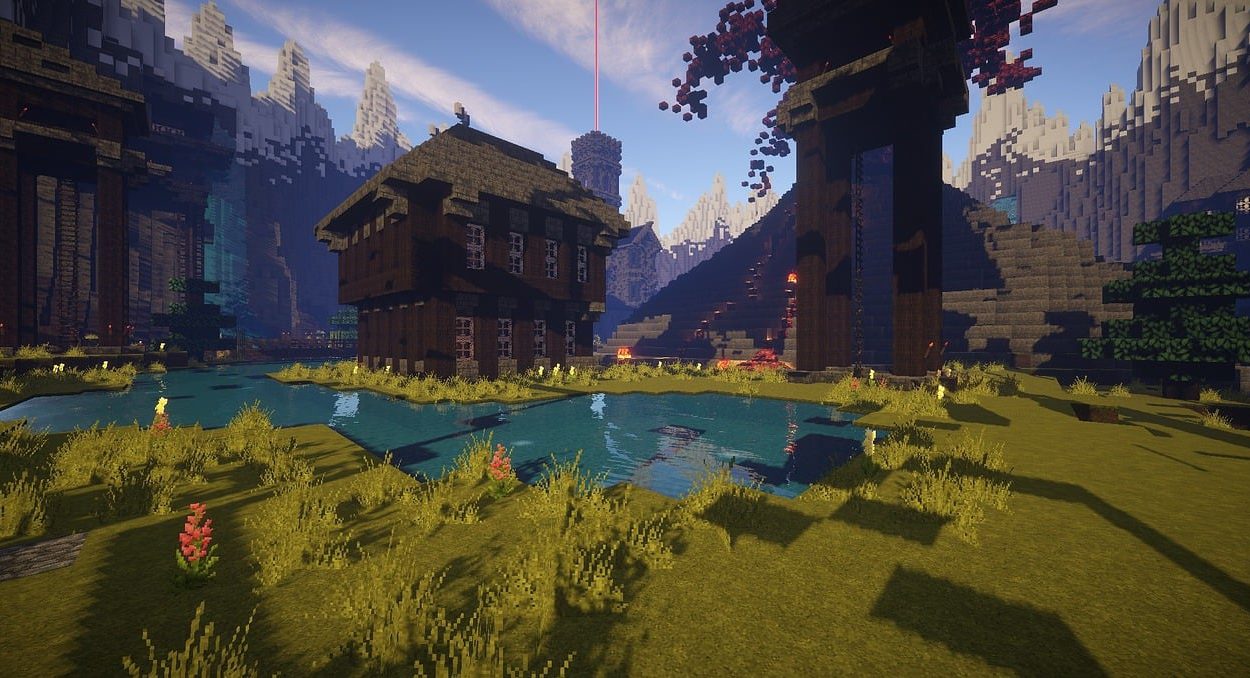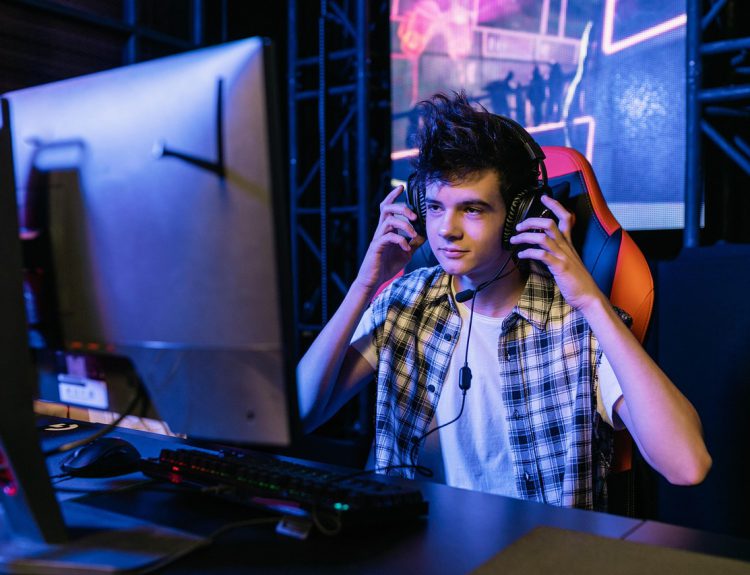The indie and modding industry is thriving, with enthusiastic developers building one-of-a-kind and immersive experiences. However, most independent small game developers find it difficult to make a living out of it. It is not always easy to transform creativity into revenue in the face of stiff competition and having many players. This guide provides real-world monetization advice that is specifically oriented towards small indie games and mods, enabling creators to maintain their key projects and enable them to succeed financially.
Free-to-play monetized with in-app purchases continues to be the most flexible approach, but the ad and subscription models also have their own strengths and weaknesses, allowing indie devs to strike a balance between the player experience and the origin of income. Regardless of producing a simple mod or a full indie game, these approaches will increase the profits and success in the future of the dynamic gaming market. Such keywords as monetize indie games, indie dev strategies, and mod monetization precondition a narrowed-down way of turning passion into profit.
Why Monetize Indie Games Matter For Developers ?
The market of indie games is very competitive and is booming with an estimated value of almost 5 billion by 2025, and the growth is also at a very high rate. It is a congested environment where the development of indie games is difficult to sustain. Money is essential; it is not only about the revenue but also about maintaining creativity and passion, as well as financing the future.
Hit indie games and mods, such as Still Wakes the Deep or amazing Steam indie hits, demonstrate that the monetized project can be successful and help the developers to survive. To most indie developers, monetization is what makes their hobby a viable profession, and it allows them to continue making quality games in an ever-growing industry.
Core Monetization Strategies for Indie Games
Core monetization strategies for indie games combine multiple approaches to maximize revenue and player satisfaction. So what are they?
Direct Game Sales
Indie games developers are also using direct game sales as a monetization strategy on platforms such as Steam, itch.io, and the Epic Games Store. Steam has a huge user base and powerful community characteristics, but cuts a third of the revenue. It is best suited to developers who want extensive exposure and community interaction. Itch.io is also flexible since developers can charge whatever they want, set their own revenue share, and design their game pages, which makes it the best fit for any niche or experimental title.
The Epic Games Store is also competitive withan 88% revenue share and less competition for those who want higher returns. Different pricing methods exist: premium games are sold at full price, price-sensitive players buy budget games, and early access provides the game being sold during the development stage, which is beneficial in terms of raising funds, getting feedback, and eventually being sold at full price. The selection of the proper platform and price for indie games is based on the audience of the game, the purpose of marketing, and the level of development of the game.
In-App Purchases and Micro transactions
Microtransactions and in-app purchases enable players to purchase cosmetic skins, DLCs, and expansions, which do not affect the gameplay. This would be a financially sustainable method that keeps games dynamic and interesting to the developers. Nevertheless, it is important to avoid pay-to-win, whereby paying players have an unfair advantage over others, as it will cause a bad image of the community and damage the reputation of the game. Rather, it is better to concentrate on optional and non-invasive buying that provides value and customization so that all the players can enjoy a fair and pleasant experience.
Crowdfunding and Early Access
Indiegogo, Kickstarter, and Patreon are crowdfunding platforms that allow indie games developers to solicit funds within their communities and bypass conventional financing obstacles. The strategy will not only supply essential initial capital but also ensure high levels of community participation, making supporters and activists into devoted fans. The benefit of having early access to a game using such platforms helps the developers to receive useful feedback when developing their game, whilst creating a sense of anticipation and trust. The successful campaigns such as Shovel Knight and Undertale, demonstrate the power of crowdfunding in terms of creativity and financial resources. In addition to financing, the platforms assist indie devs to work out the ideas, maintain the creative control, and establish a fan base that would support and promote their projects during the development stages and beyond.
Licensing and Distribution Deals
The relationships with publishers, licensing, and distribution agreements provide indie developers with opportunities to reach more people and obtain marketing, financing, and wider audiences. In the revenue share models, the profits are usually divided; publishers usually receive 30-50 percent of the profits in exchange for their services and investment.
Although revenue sharing will help to decrease financial risk and increase transparency, it will come at a cost of independence. Work-for-hire arrangements give certain payments but tend to lose future profits. Licensing and distribution deals are a strategic decision that developers must consider based on the objectives and resources of a project due to the trade-offs involved between getting the backing of the publisher and maintaining complete control.
Monetizing Game Mods
Commercialization of game mods provides innovators with the chance to generate revenue through their hobby, besides improving the experiences of the players. There are also different models of monetization, such as paid mods on the platform, donation-based support, and bundling mods with game assets, which serve various audiences and purposes of developers.
Paid Mods on Platforms
Itch.io, Steam Workshop, and Nexus Mods are some of the well-known websites on which modders can sell their work. With Steam Workshop, modders may set prices on mods, including those as basic as cosmetic adjustments to those much more complex in nature, but again, it is price and quality that will attract the customers. Nexus Mods also accepts donations but has selectively introduced paid mods. itch.io is actively priced at the free end and is distributed freely. The pricing should also be based on value and effort, taking into consideration the expectations of the players in terms of fairness and accessibility. Free mods with paid will assist in developing trust and community.
Donation and Support Models
The resources, such as Patreon, Ko-fi, and PayPal, allow fans to fund modders at their own expense. Effective modders are likable and attractive because they communicate their stages of development, provide exclusive environmental perks, and communicate with their fans without imposing solicitations. Accountability and the involvement of the actual community promote the involvement without losing the fans, and hence, the option of donations is a long-term source of income and does not harm the sentiment.
Bundling Mods with Game Assets
The sale of mod packs, tools, or custom content bundles can be an additional source of value and revenue to modders who are moving to indie development. Creators can earn more revenue and reach a larger audience by curating mod collections or sets of assets and selling them in packages. This model assists modders to establish a portfolio, become independent, and finally release their own indie title,s putting their community expertise and content creation skills into sustainable growth.
Alternative Revenue Streams for Small Developers
Small indie developers can also expand revenue beyond sales of the game by seeking other sources of income. These streams provide financial security and develop the community, as well as improve the game brand.
Advertising and Sponsorships
Gaming brand in-game advertisements and sponsorships are a source of continuous revenue. Placing advertisements appropriately will result in them being unobtrusive and will not disrupt the gameplay or the satisfaction of the player. Sponsorships permit brand partnerships that enhance recognition and trust without clogging the user experience.
Merchandising and Branding
The sale of merchandise such as stickers, t-shirts, and art books creates a fan-based ecosystem around the game. Merchandising makes the brand more loyal, enabling fans to demonstrate enthusiasm, and creates extra revenues beyond the game.
Streaming and Content Creation
The developers are able to stream on YouTube or Twitch the process of developing the game to form communities and get a profit with the help of affiliate links, advertisements, and donations. Streaming offers real interaction, increased interest, and following with financial returns more than traditional sales.
Best Practices for Monetizing Without Losing Fans
The best practices of monetizing games without fan loss are focused on transparency, which creates a sense of trust and establishes communication on all aspects of monetization and updates. Free updates, exclusive content, and community events are incentives to fulfill the loyalty of players and make them feel appreciated and valued, which leads to long-term support.
It is important to avoid the use of manipulative strategies that force players or distort the core of the game and make the experience unfair and unpleasant. Games that appropriately monetize without interfering with the player by providing optional, unobtrusive upgrades and ensuring a healthy community can be monetized over the long run. The willingness to put player satisfaction ahead of immediate gains will lead to success and loyalty in the long run in a competitive environment.
Tools and Platforms to Help Developers Monetize
Several tools and platforms can be used by developers to make good money. Itch.io, Steam Direct, Epic Games Store, and other popular game platforms present powerful distribution, monetization platforms, and reach to high viewerships. Modding websites like Nexus Mods and ModDB enable the creators to share and monetize mods, usually backed by the community.
To make payments and continue supporting the project, services such as PayPal, Stripe, and Patreon offer secure and convenient methods of donations and subscriptions, as well as direct purchasing. Collectively, they enable developers to have a source of revenue that is flexible and, at the same time, maintain control over the projects they build, either a one-time sales model or a recurrent revenue.
Case Studies and Success Stories
A great example that can be found inspirational is of a modder who leaped to a professional studio position by demonstrating his or her abilities through popular mods. They came across a major game developer with their knowledge of beating technical difficulties and making quality content, and their first career move was in level design at a AAA studio. This direction shows how modding can become a rocket to a career as a professional game developer.
The other success story is that of an indie developer who used Kickstarter and early access to fund and polish their game. Their interaction with the backers and players in the course of development created a loyal community, enhanced the game by receiving feedback, and greatly succeeded in launching the game. This strategy has shown how small-scale strategies can open big opportunities regarding funding and growth.
Both examples demonstrate that, through hard work and ingenious solutions, indie developers and modders will be able to make their love projects into lucrative ventures and utilize the tools and platforms of the changing gaming industry.
Key Challenges and How to Overcome Them
The main issues of indie developers include market saturation. Thousands of games are being released every day, and to become different, it is necessary to pay attention to a specific niche audience, which appreciates the peculiarities of a project. Another challenge is the legal and licensing concerns of mods. The developers will have to conduct thorough research on game policies and ensure that they are properly licensed to eliminate the risk of copyright violation and takedown.
Selling itself on a shoestring is also not an easy task; indie developers are in a very good position to use social media and Discord servers, Reddit communities, and influencer partnerships to create free buzz without spending a lot of money. With such issues tackled via careful solutions, indie developers will be able to gain better exposure, minimize risks, and create loyal communities of players despite intense competition.
Conclusion
Few people succeed on the first attempt; developers have to experiment to discover what will appeal to their audience. It is important to merge several sources of revenue and remain flexible. Consecutive experiments with different monetization schemes enable developers to work out the strategy, create engaged communities, and eventually create a sustainable career.
For small game makers who value their work, perseverance, receptiveness to suggestions, and a fair amount of forethought can transform the ingenious projects into profitable enterprises with potential to grow in the long term.
Take control of your money today with The Finance Gig—your go-to source for smart finance tips, proven strategies, and fresh ideas to grow your wealth.






